
What is a symbol of water?
-connection of man and nature
-constant change
-heavenly intervention
-heat and wind
What is constant change?
"The head of the spade was well and truly buried. Tree-ear tried using both hands down low on the handle. The clay made a squelching, sucking noises, as if it were trying to swallow the spade"
Identify the figurative language being implemented in the passage.
-hyperbole
-simile
-personification
-rhyme
What is personification?
This was the greatest satisfaction. The meals provided by Min’s wife were simple, but they never failed to delight his friend, who opened the gourd parcel each evening as if it were a gift of royal jewels. “Bean curd tonight, “ Crane-man would say, his eyes gleaming. “With cucumber kimchee as well. That woman is an artist!”
In the passage, what does the word "gleaming" most closely mean as Crane-man's eyes are described?
-filled with tears
-sparkling with joy
-showing anger
-appearing tired
What is sparkling with joy?
To Tree-ear’s surprise, Min’s wife was waiting for him out on the road in front of the house the next morning. Besides her were the cart and spade. Although her face was as placid and kind as always, Tree-ear saw in her eyes some great worry that even her gentle smile of greeting could not hide. (Ch.7 pg 84)
...................................................................
Her face was partially hidden behind the linen sheet she was hanging; she fixed it firmly to the line before she answered. (Ch.8 pg. 90 )
How does Min's wife handle her worry?
-She expresses it openly
-She tries to conceal it
-She ignores Tree-ear
-She becomes angry
What is she tries to conceal it?
It would take many days, over unfamiliar mountains where there might not even be a path to follow, much less a road. He might well lose his way. And who knows what perils awaited him? Robbers, wild animals, rockslides . . . What had he been thinking?
Which phrase best describes the meaning of "perils" as used in the passage?
-Pleasant surprises
-Simple challenges
-Dangerous situations
-Small obstacles
What is dangerous situations?
Tree-ear rolled onto his side and vomited. He retched again and again, until his stomach felt as empty as his spirit. Shakily, he rose to his feet and bent over doubled, his hands on his knees.
Failure. The most dishonorable failure. He had been unable to keep the vase safe; Puyo was not even halfway to Songdo. If he had reached his destination and the work had been rejected by the court, at least he would have done his part.
What does the word "dishonorable" suggest about Tree-ear's culture and values?
-Success is the only acceptable outcome
-Honor and duty are highly valued
-Failure is easily forgiven
-Physical strength matters most
What is honor and duty are highly valued?
Tree-ear threw a second rock, then a third. Suddenly, he was hurling a barrage of rocks into the water, one after the other, harder and harder, until the water roiled and foamed beneath the rain of rocks. In a senseless frenzy Tree-ear three leaves and sticks and clods of dirt–what-ever he could get his hands on.
Finally, he had no breath left. He bent over clutching his stomach and panting, then knelt in the mud of the stream bank and watched the trouble water subside.
The word "panting" in the passage suggests:
-Speaking loudly
-Heavy breathing
-Singing softly
-Crying quietly
What is heavy breathing?
What is the best synonym for the word garb?
-Shirt
-Outfit
-Style
-Official
What is outfit?
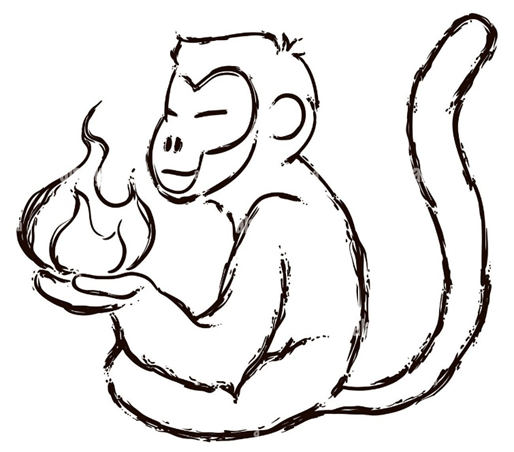
What is a symbol of a monkey?
-human intelligence, fire, and trees
-chaos, fire, and play
-money, play, and human wisdom
-intelligence, play, and human wisdom
What is intelligence, play, and human wisdom?
"Sure enough, after handing Tree-ear the bowls to wash, Crane-man sat down with his knife and a sturdy straight branch and began to whittle a new crutch."
Which groups of words could help you infer the meaning of "to whittle"?
-with his knife
-handing Tree-ear the bowls
-Crane-man sat down
-to whittle
What is with his knife?
This was the greatest satisfaction. The meals provided by Min’s wife were simple, but they never failed to delight his friend, who opened the gourd parcel each evening as if it were a gift of royal jewels. “Bean curd tonight, “ Crane-man would say, his eyes gleaming. “With cucumber kimchee as well. That woman is an artist!”
Which type of context clue can you use to determine the meaning of "gleaming" as it is used in this passage.
"never failed to delight" is an example of Crane-man's happiness.
"With cucumber kimchee" is an example of Crane-man's boredom with the food.
"gift of royal jewels" is an antonym of the food provided to Crane-man.
We can infer than Crane-man is angry with "Bean curd tonight"
What is "never failed to delight" is an example?
“It was many days before I could even think about making the journey again, and by that time, this” – Crane-man waved his chopsticks at the little space– “had begun to seem like home. Days became months, months grew into years. Then you came along.” Crane-man smiled as he finished his story. “Between the fox and you, I was destined never to become a monk!”
What can be inferred about Crane-man's original intentions?
-He wanted to be a potter
-He planned to become a monk
-He wished to be a teacher
-He desired to be a Confucian scholar
What is he planned to become a monk?
Tree-ear and Crane-man skipped stones under the bridge in the twilight. Before the light was gone, Tree-ear reached into his waist pouch and slowly withdrew a small object. He handed it to Crane-man.
“A gift”, Tree-ear said, “To remind you of your promise to go daily to the house of Min.” He did not want to say, to remind you of me.
Based on the passage, what can you infer about Tree-ear's relationship with Crane-man?
- They are casual acquaintances who rarely meet
-They are enemies who compete with each other
-They share a close bond and care deeply for each other
-They are business partners working together
What is they share a close bond and care deeply for each other?
The next several days passed in a steady blur. Tree-ear walked and walked. The sun shone; he walked. Rain poured; he walked. From sunrise until dark he walked without stopping, drinking from a gourd along the way.
What character trait is most clearly demonstrated by Tree-ear in this passage?
-Laziness
-Fear
-Determination
-Confusion
What is determination?
Concentrating on the answer to the emissary’s questions helped steady Tree-ear. “I think ten. Not fewer, but not many more…” He looked up and spoke with pride. “My master works slowly.”
The emissary nodded solemnly. “As well he should.” He bowed his head to Tree-ear. “If you have need of shelter here in Songdo, my assistant will see to it that you are housed and fed until the boat sails. Your coming is greatly appreciated.”
How does the structure of the passage contribute to its meaning?
-It moves from external dialogue to internal emotion
-It focuses solely on action sequences
-It emphasizes physical descriptions
-It relies on flashbacks
What is it moves from external dialogue to internal emotion?
What is the best antonym for the word jovial?
-Joyous
-Laughter
-Interested
-Hatred
What is hatred?
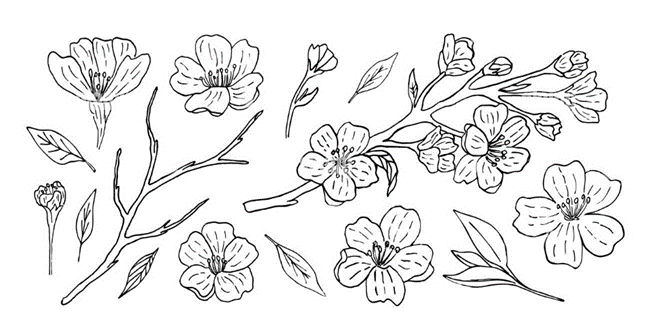
What is a symbol of cherry blossoms?
-cycle of life, death, and rebirth
-cycle of life, death, and sorrow
-cycle of destruction, death, and rebirth
-cycle of destruction, death, and sorrow
What is the cycle of life, death, and rebirth?
"Was it stealing, to wait as Tree-ear had for more rice to fall before alerting the man that his rice bag was leaking? Did a good deed balance out a bad one? Tree-ear often pondered these kinds of questions, alone or in discussion with Crane-man"
Use context clues to select the word or phrase that best matches the underlined word.
-regretted
-sustained
-sang
-evaluated
What is evaluated?
Tree-ear knew that potters sometimes attempted to paint designs on their work using colored slip. But the attempts were far from successful. When glazed and fired, the slip blurred or ran, making the edges of the design indistinct rather than crisp and clear. Every once in a while, an inexperienced potter would try his hand at painting his pieces, but the more accomplished potters, Min and Kang among them, had long ago given up trying the technique.
Why do you think Min and Kang have given up trying to use colored slip on their pottery?
-They prefer to use only natural colors.
-They find it too difficult and frustrating.
-They believe it is not worth the effort due to past failures.
-They are not interested in painting at all.
What is they believe it is not worth the effort due to past failures?
And think he did, gathering his courage until at last there was enough of it to enable him to stand before Min with a request. ................................................................................
Tree-ear pulled in the muscles of his stomach to stop their quaking. “I was wondering… if the Master would be so good… if he thinks my work worthy–”
Min snapped, “Ask your question or leave me in peace boy!”
“If you would one day be teaching me to make a pot.” Tree-ear’s words rushed out in a single breath.
Min's response to Tree-ear demonstrates what character trait?
-Patience
-Kindness
-Impatience
-Enthusiasm
What is impatience?
Arms crossed and stance defiant, Tree-ear stood under the bridge and began to speak.
I have a journey to make,” he said sternly. “Over a road unknown to me. A thousand things could go wrong. Do you not think I have enough to worry about?”
It would take many days, over unfamiliar mountains where there might not even be a path to follow, much less a road. He might well lose his way. And who knows what perils awaited him? Robbers, wild animals, rockslides . . . What had he been thinking?
What does the repetition of "have" in "have a journey" and "have enough" emphasizes:
-The journey's simplicity
-Poetic repetition of the stanzas
-The serious mood of the situation
-Tree-ear's uncertainty of what's on the road
What is to emphasize the serious mood of the situation?
Tree-ear rolled onto his side and vomited. He retched again and again, until his stomach felt as empty as his spirit. Shakily, he rose to his feet and bent over doubled, his hands on his knees.
Failure. The most dishonorable failure. He had been unable to keep the vase safe; Puyo was not even halfway to Songdo. If he had reached his destination and the work had been rejected by the court, at least he would have done his part.
What does the phrase "empty as his spirit" suggest about Tree-ear?
-He needs to rest
-He is physically exhausted
- He feels completely defeated
-He is hungry for food
What is he feels completely defeated?
Tree-ear shook his head hard, like a dog shaking off water. He groped about in his mind for an image that would calm him. A prunus vase, with a plum branch to complete its beauty–his dream of making one returned, stronger than ever now, for it would be more than a dream.
He could almost feel the clay under his hands, rising on the wheel–his own wheel! –into a shape that was grace itself. He would make replicas, dozens if need be, until the glaze was like jade and water. And the vase would be carefully, delicately inlaid, with a design of – of …
What can be inferred about Tree-ear's character from this passage?
-He is easily discouraged
-He is content with his current situation
-He is ambitious and determined
-He is angry and frustrated
What is he is angry and frustrated?
What is the best match to the word defiant as used in this sentence: "Arms crossed and stance defiant, Tree-ear stood under the bridge and began to speak. "I have a journey to make," he said sternly. "Over a road unknown to me."
-stance
-yelling
-scolding
-dishonor
What is scolding?
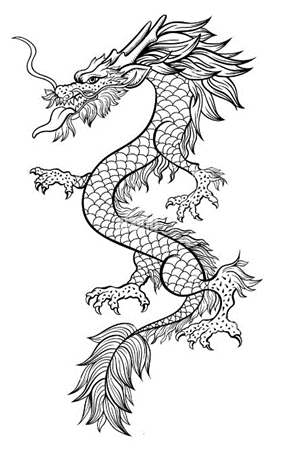
What is a symbol of a dragon?
-heavenly rains, heavenly power, and holiness.
-heavenly wisdom, heavenly rains, and holiness.
-imperial power, heavenly holiness, and control.
-heavenly wisdom, heavenly power, and control.
What is heavenly wisdom, heavenly power, and control?
"Tree-ear picked up the chopsticks and stared for a moment. Of one thing he was certain: The feast-day banquets in the palace of the King could never be better than the modest meal before him, for he had earned it."
What is suggested about Tree-ear's beliefs base on this passage?
-Tree-ear is proud that he stood up to Min.
-Tree-ear places value on the things he has worked hard for in life.
-Tree-ear is proud that he has trick Min into feeding him.
-Tree-ear does not place a high value on the King.
What is Tree-ear places value on the things he has worked hard for in life?
Tree-ear knew that potters sometimes attempted to paint designs on their work using colored slip. But the attempts were far from successful. When glazed and fired, the slip blurred or ran, making the edges of the design indistinct rather than crisp and clear. Every once in a while, an inexperienced potter would try his hand at painting his pieces, but the more accomplished potters, Min and Kang among them, had long ago given up trying the technique.
Which contextual word is the best antonym of the word “blurred” as used in this passage?
“ran”
“successful”
“painting”
“crisp”
What is "crisp"?
“It was many days before I could even think about making the journey again, and by that time, this” – Crane-man waved his chopsticks at the little space– “had begun to seem like home. Days became months, months grew into years. Then you came along.” Crane-man smiled as he finished his story. “Between the fox and you, I was destined never to become a monk!”
The mood of this passage can best be described as:
-Melancholic and regretful
-Nostalgic and accepting
-Angry and frustrated
-Fearful and anxious
What is nostalgic and accepting?
Arms crossed and stance defiant, Tree-ear stood under the bridge and began to speak.
I have a journey to make,” he said sternly. “Over a road unknown to me. A thousand things could go wrong. Do you not think I have enough to worry about?”
What does Tree-ear's "defiant" stance suggest about his emotional state?
-He is scared and timid
-He is feeling uncertain
-He is determined and resolute
-He is relaxed and casual
What is he is determined and resolute?
Concentrating on the answer to the emissary’s questions helped steady Tree-ear. “I think ten. Not fewer, but not many more…” He looked up and spoke with pride. “My master works slowly.”
The emissary nodded solemnly. “As well he should.” He bowed his head to Tree-ear. “If you have need of shelter here in Songdo, my assistant will see to it that you are housed and fed until the boat sails. Your coming is greatly appreciated.”
In the passage, what does Tree-ear's response "My master works slowly" convey about his master?
-Pride in his master's dedication to quality
-Uncertainty about the work schedule
-Criticism of his master's methods
-Frustration with his master's pace
What is pride in his master's dedication to quality?
Concentrating on the answer to the emissary’s questions helped steady Tree-ear. “I think ten. Not fewer, but not many more…” He looked up and spoke with pride. “My master works slowly.”
The emissary nodded solemnly. “As well he should.” He bowed his head to Tree-ear. “If you have need of shelter here in Songdo, my assistant will see to it that you are housed and fed until the boat sails. Your coming is greatly appreciated.”
What literary device is used in "to laugh, to cry, to fling his arms around"?
-Alliteration
-Parallel structure
-Assonance
-Onomatopoeia
What is parallel structure?
What would be an example of a peril as it is used in the following sentence? "He might well lose his way. And who knew what perils awaited him? Robbers, wild animals, rockslides . . . What had he been thinking?
-illness and starvation
-random villages
-Buddhist temples
-government officials
What are illness and starvation?
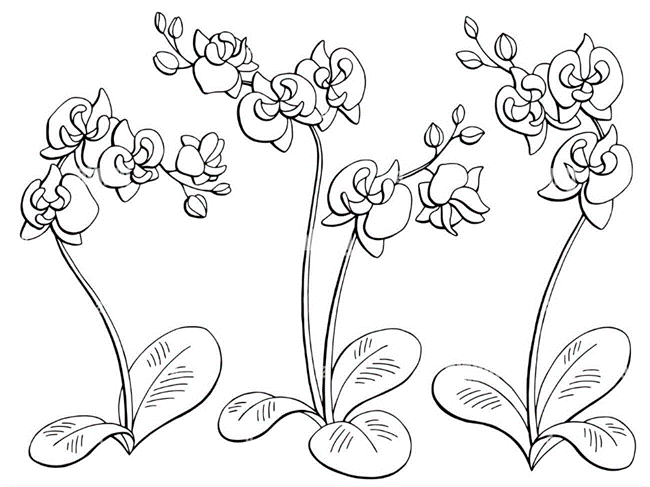
What is a symbol of an orchid?
-sloppiness, dishonor, and indignity.
-elegance, honor, and dignity
-intelligence, honor, and dignity.
-elegance, honor, and wealth.
What is elegance, honor, and dignity?
"He shook his head and in a single motion of disgust scooped up the clay and slapped it back onto the wheel, whereupon it collapsed into an oafish lump again, as if ashamed."
The underline portion of this sentence is an example of what for of figurative language?
-personification
oxymoron
-simile
-onomatopoeia
What is a personification?
Tree-ear was surprised by the greeting. The other children of Ch’ulp’o had long spurned him, for orphans were considered very bad luck. Children would step aside when he drew near, and the smaller ones often ducked behind their mothers’ shirts. Since he had begun working for Min, the other potters’ assistants tolerated his presence, but a friendly greeting was still a rarity. It must be important news indeed.
How does Tree-ear's work with Min change his relationship with the other potters' assistants?
-It makes them dislike him more.
-They completely ignore him.
-They start to tolerate his presence.
-They want him to leave.
What is they start to tolerate his presence?
To Tree-ear’s surprise, Min’s wife was waiting for him out on the road in front of the house the next morning. Besides her were the cart and spade. Although her face was as placid and kind as always, Tree-ear saw in her eyes some great worry that even her gentle smile of greeting could not hide. (Ch.7 pg 84)
...................................................................
Her face was partially hidden behind the linen sheet she was hanging; she fixed it firmly to the line before she answered. (Ch.8 pg. 90 )
What does Min's wife's presence with the cart and spade indicate?
-She is lazy and forgetful
-She is angry with Tree-ear
-She is tries to fix problems quietly
-She is avoiding work
What is she is tries to fix problems quietly?
Slowly, Slowly, he picked up the jiggeh. He meant to squeeze it into the hollow between the two boulders but could not do so silently. The branches of the jiggeh scraped against the granite. Tree-ear froze, holding his breath.
This would never do. He had to work quickly, or the creature, whatever it was, would be upon him before he knew it. He shoved the jiggeh into the opening, put his back into it, and wriggled in himself. There was not enough room; he crouched, hunched over with his chin on his knees, and waited, his heart nearly bursting through his chest.
Which textual evidence suggests that Tree-ear is trying to be cautious?
-"wriggled in himself"
-"Slowly, slowly, he picked up the jiggeh"
-"put his back into it"
-"There was not enough room"
What is "Slowly, slowly, he picked up the jiggeh"?
Across one side of the shard ran a shallow groove, evidence of the vase’s mellon shape. Part of an inlaid peony blossom with its stem and leaves twined along the groove. And the glaze still shone clear and pure, untouched by the violence that had just been done to it.
A sharp edge of the shard bit into Tree-ear’s palm. The pain was an echo–he remembered now. It was when he had thrown the shard from the first batch of ruined vases into the river in Ch’ulp’o. How long ago it seemed!
Which detail from the passage suggests that the vase was decorated with natural elements?
-The ceramic material
-The sharp edge
-The peony blossom
-The clear glaze
What is the peony blossom?
Tree-ear threw a second rock, then a third. Suddenly, he was hurling a barrage of rocks into the water, one after the other, harder and harder, until the water roiled and foamed beneath the rain of rocks. In a senseless frenzy Tree-ear three leaves and sticks and clods of dirt–what-ever he could get his hands on.
Finally, he had no breath left. He bent over clutching his stomach and panting, then knelt in the mud of the stream bank and watched the trouble water subside.
The word "barrage" in the passage means:
-A single throw
-A gentle toss
-An overwhelming number
-A careful selection
What is an overwhelming number?
What would be an example of a poise as it is used in the following sentence? "Min's cane halted in mid-blow. The potter stood over the boy with his cane still poised for another strike. 'Have you been here before, beggar-boy?'"
-angered
-ready
-striking
-wanting
What is ready?
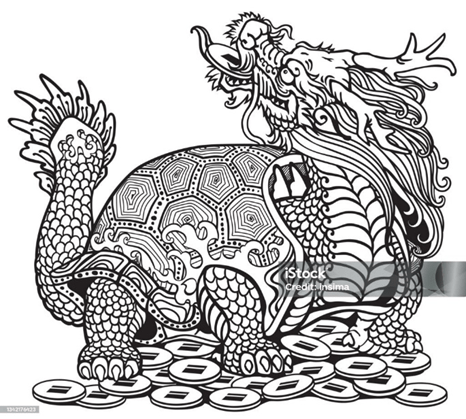
What is a symbol of turtles?
-connection of man and nature
-stability, heavenly intervention, and water
-longevity, stability, and family love
-playfulness, innocence, and longevity
What is longevity, stability, and family love?
"Perhaps, he thought now, if he chopped enough wood quickly, there would still be time at the end of the day...
Min quashed that hope with his next few words. 'Take care to go far into the mountains,' he said. 'Far too many trees have been cut too close to the village."
Use context clues to select the word or phrase that best matches the underlined word.
-This means to inspire
-This means to shout at someone
-This means to extinguish
-This means to construct
What is it means to extinguish?
“If a man is keeping an idea to himself, and that idea to himself, and that idea is taken by stealth or trickery–I say it is stealing. But once a man has revealed his idea to others, it is no longer his alone. It belongs to the world.”
An image floated out of the darkness into Tree-ear’s mind-that of himself with his eyes pressed to the knothole of Kang’s shed.
Stealth. He could not yet tell Min of Kang’s idea.
Why do you think the author chose to place "Stealth." as a separate sentence?
-To show that Tree-ear is distracted by his thoughts.
-To make it stand out and emphasize its importance to Tree-ear's decision.
-To suggest that Tree-ear does not understand the concept of stealth.
-To create a transition to a new topic in the story.
What is to make it stand out and emphasize its importance to Tree-ear's decision?
And think he did, gathering his courage until at last there was enough of it to enable him to stand before Min with a request. ..............................................................
Tree-ear pulled in the muscles of his stomach to stop their quaking. “I was wondering… if the Master would be so good… if he thinks my work worthy–”
Min snapped, “Ask your question or leave me in peace boy!”
“If you would one day be teaching me to make a pot.” Tree-ear’s words rushed out in a single breath.
The phrase "at last there was enough of it" refers to:
-Time
-Breath
-Courage
-Knowledge
What is courage?
Tree-ear and Crane-man skipped stones under the bridge in the twilight. Before the light was gone, Tree-ear reached into his waist pouch and slowly withdrew a small object. He handed it to Crane-man.
“A gift”, Tree-ear said, “To remind you of your promise to go daily to the house of Min.” He did not want to say, to remind you of me.
How does the author develop the point of view in this passage?
-Through first-person narration from Tree-ear's perspective
-Through omniscient narration focusing on multiple characters
- Through third-person narration with insight into just Tree-ear's thoughts
-Through dialogue between multiple characters
What is through third-person narration with insight into just Tree-ear's thoughts?
The next several days passed in a steady blur. Tree-ear walked and walked. The sun shone; he walked. Rain poured; he walked. From sunrise until dark he walked without stopping, drinking from a gourd along the way.
If dark found him near a village, he slept outside a house and accepted whatever was offered in the way of food. If there was no village, he slept in a ditch by the side of the road or under a tree in the forest. He ate perhaps once every two days, feeling no need of food but knowing that without it he could not complete the journey.
How does the author's word choice impact the tone of the passage?
-Creates a romantic atmosphere
-Establishes a matter-of-fact mood
-Develops a humorous tone
-Builds suspense and mystery
What is establishes a matter-of-fact mood?
Tree-ear shook his head hard, like a dog shaking off water. He groped about in his mind for an image that would calm him. A prunus vase, with a plum branch to complete its beauty–his dream of making one returned, stronger than ever now, for it would be more than a dream.
He could almost feel the clay under his hands, rising on the wheel–his own wheel! –into a shape that was grace itself. He would make replicas, dozens if need be, until the glaze was like jade and water. And the vase would be carefully, delicately inlaid, with a design of – of …
The description of the glaze as "like jade and water" is an example of:
-Hyperbole
-Personification
-Simile
-Metaphor
What is a simile?
What is the strongest clue to the meaning of halted provided in this context? "Min's cane halted in mid-blow. The potter stood over the boy with his cane still poised for another strike. 'Have you been here before, beggar-boy?'"
-Inference: "beggar-boy"
-Antonym: "stood over"
-Example: "mid-blow"
What is Example: "mid-blow"?